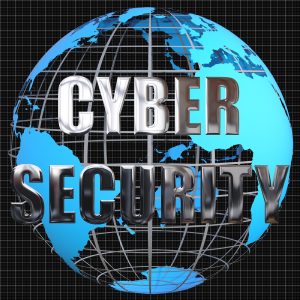Sim-Ex mobile apps offer a flexible and efficient way to prepare for IT and professional certification exams, including CompTIA, Cisco, Juniper, and Microsoft certifications. These apps provide features like customizable test modes, detailed performance analytics, and offline accessibility, ensuring a comprehensive learning experience. With regularly updated content, a user-friendly interface, and cost-effective solutions, Sim-Ex apps empower learners to study anytime, anywhere, and build the confidence needed to excel in their certification journey.
Key Features
- Wide Range of Practice Tests:
- Sim-Ex apps offer practice tests for popular certifications such as CompTIA (A+, Network+, Security+), Cisco (CCNA, CCNP), Juniper (JNCIA) Microsoft, and more.
- They aim to replicate the actual exam environment, helping users familiarize themselves with the format and types of questions.
- Customizable Test Modes:
- Learning Mode: Provides instant feedback and explanations for answers, ideal for those in the early stages of preparation.
- Exam Mode: Simulates the real exam conditions with a time limit and no immediate feedback, enabling candidates to assess their readiness.
- Detailed Reports:
- Post-test analytics show performance metrics, including scores, question-wise breakdowns, and areas needing improvement.
- Regular Updates:
- The apps are periodically updated to align with the latest exam objectives and changes in certification standards.
- Offline Accessibility:
- Many features of the Sim-Ex apps are accessible offline, making them convenient for users who may not always have internet connectivity.
- User-Friendly Interface:
- The apps are designed with an intuitive layout, ensuring a smooth experience for learners of all levels.
Benefits of Sim-Ex Mobile Apps
- Convenience:
- Learners can study anytime and anywhere, removing the constraints of traditional study methods.
- Focused Preparation:
- With topic-wise practice and customized question sets, users can target specific areas where they need improvement.
- Cost-Effective:
- Compared to physical books or in-person training, these apps offer an affordable alternative for exam preparation.
- Improved Confidence:
- Simulating real exams and tracking progress helps build the test-taking confidence needed to excel on certification day.
Target Audience
- IT Professionals: Preparing for certifications like CompTIA, Cisco, and Microsoft.
- Students: Looking for structured learning aids for technical exams.
- Career Changers: Individuals transitioning to tech roles who need flexible learning options.
For more detailed information or to download the apps, visit the official SimulationExams Mobile Apps page.

 Cybersecurity is the practice of protecting internet-connected systems, including hardware, software, and data, from digital attacks. The term encompasses a vast range of practices, tools, and technologies that aim to safeguard the integrity, confidentiality, and availability of digital assets. Cybersecurity is important because the world is increasingly reliant on digital systems. From financial transactions to healthcare records, a significant portion of our lives is now stored and managed online. This reliance introduces a range of potential risks, including data breaches, identity theft, and system failures, which cybersecurity practices aim to mitigate. Cybersecurity can be divided into several sub-categories, including network security, application security, information security, operational security, and disaster recovery and business continuity. Each of these areas requires a unique set of strategies, tools, and best practices to ensure comprehensive cybersecurity. There are numerous cybersecurity certifications available that can help professionals demonstrate their knowledge, skills, and expertise in the field. Some of the most popular and widely recognized certifications include:
Cybersecurity is the practice of protecting internet-connected systems, including hardware, software, and data, from digital attacks. The term encompasses a vast range of practices, tools, and technologies that aim to safeguard the integrity, confidentiality, and availability of digital assets. Cybersecurity is important because the world is increasingly reliant on digital systems. From financial transactions to healthcare records, a significant portion of our lives is now stored and managed online. This reliance introduces a range of potential risks, including data breaches, identity theft, and system failures, which cybersecurity practices aim to mitigate. Cybersecurity can be divided into several sub-categories, including network security, application security, information security, operational security, and disaster recovery and business continuity. Each of these areas requires a unique set of strategies, tools, and best practices to ensure comprehensive cybersecurity. There are numerous cybersecurity certifications available that can help professionals demonstrate their knowledge, skills, and expertise in the field. Some of the most popular and widely recognized certifications include: